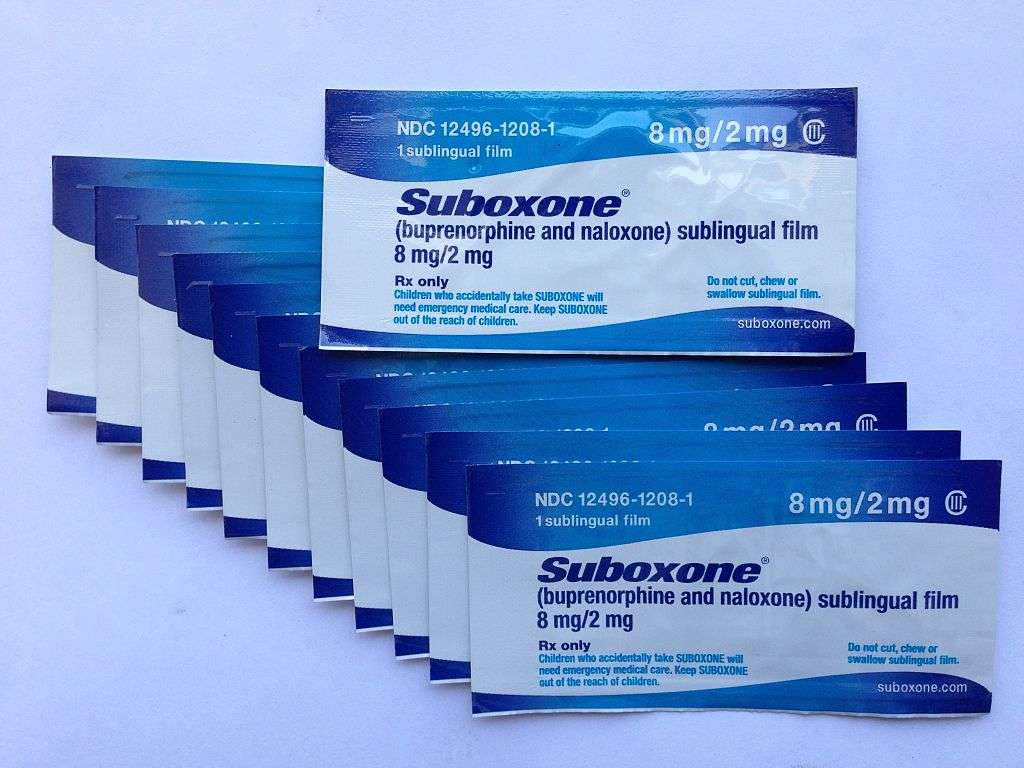The impact of Suboxone on sexual health is a topic of significant importance for individuals undergoing opioid addiction treatment. It is essential to understand that while Suboxone has proven to be an effective tool in addiction treatment, it may also have implications for sexual health. Many individuals express concerns about the potential impact of Suboxone on their sexual well-being, including changes in sexual desire, performance, and overall satisfaction.
Throughout this article, we will explore the relationship between Suboxone and sexual health, shedding light on potential side effects and discussing strategies for managing any challenges that may arise. By addressing these concerns, we aim to provide comprehensive information and support to individuals navigating the complexities of Suboxone treatment.
Now, let’s delve deeper into the specific impact of Suboxone on sexual health, examining the potential effects it may have on both men and women. By doing so, we can equip individuals with knowledge and insights to better understand and address any issues related to sexual well-being during their recovery journey.


Understanding Suboxone
Suboxone is a medication widely used in the treatment of opioid addiction. It is a combination medication that consists of two main components: buprenorphine and naloxone. To comprehend the impact of Suboxone on sexual health, it is essential to understand how this medication works in treating opioid addiction.
Buprenorphine, one of the key components of Suboxone, belongs to a class of drugs known as partial opioid agonists. It acts on the same receptors in the brain that opioids such as heroin or prescription painkillers target. However, unlike full agonists, buprenorphine produces a milder effect, reducing withdrawal symptoms and cravings without inducing the same level of euphoria.
Naloxone, the other component of Suboxone, acts as an opioid receptor antagonist. Its presence in the medication serves to discourage the misuse of Suboxone by individuals attempting to inject or misuse it to achieve a high. When taken as prescribed, naloxone has limited systemic effects.
By combining buprenorphine and naloxone, Suboxone offers a comprehensive approach to opioid addiction treatment. It helps individuals manage the physical symptoms of withdrawal while minimizing the risk of misuse. This makes it a valuable tool in harm reduction and long-term recovery.
One of the primary benefits of Suboxone as an opioid substitution therapy is its ability to stabilize individuals with opioid addiction. By replacing more potent opioids with Suboxone, individuals can experience a reduction in withdrawal symptoms and cravings, enabling them to focus on their recovery journey.
Moreover, Suboxone has a longer duration of action compared to other opioids. This means that individuals typically require fewer doses throughout the day, leading to improved medication adherence and reduced fluctuations in opioid levels in the body. This stability can contribute to better overall well-being, including mental and physical health.
It is important to note that while Suboxone has numerous benefits in the treatment of opioid addiction, it is not without potential side effects. These side effects can extend to various aspects of a person’s health, including sexual well-being.
The Relationship between Suboxone and Sexual Health
Suboxone, a medication used in the treatment of opioid addiction, has been associated with potential effects on sexual health. Understanding the relationship between Suboxone and sexual well-being is crucial for individuals undergoing addiction treatment. In this section, we will explore the impact of Suboxone on sexual health, address concerns regarding sexual side effects, and emphasize the importance of maintaining overall well-being during the treatment process.
Addiction and substance abuse can profoundly impact sexual health, leading to various challenges such as changes in desire, arousal, and sexual satisfaction. When individuals begin Suboxone treatment, it is natural for them to wonder if the medication will affect their sexual well-being. While research on this topic is ongoing, it is important to acknowledge and address these concerns.
Common Sexual Side Effects of Suboxone
While not everyone may experience sexual side effects while taking Suboxone, some individuals may encounter changes in their sexual functioning. It is essential to be aware of these potential side effects to address them effectively. Here are some of the commonly reported sexual side effects associated with Suboxone usage:
- Decreased Sexual Desire: Some individuals may experience a decrease in sexual desire or libido while on Suboxone treatment. This could manifest as a reduced interest or motivation for engaging in sexual activities.
- Erectile Dysfunction: Suboxone has been associated with erectile dysfunction in some men. This refers to the difficulty in achieving or maintaining an erection sufficient for sexual intercourse.
- Orgasmic Dysfunction: Suboxone usage may lead to difficulties in achieving orgasm or delays in reaching climax for both men and women. This can affect sexual satisfaction and overall sexual experience.
- Anorgasmia: Anorgasmia is the inability to achieve orgasm. While rare, some individuals may report difficulties in experiencing orgasm while taking Suboxone.
The prevalence and severity of these sexual side effects can vary among individuals. It is important to note that not everyone will experience these effects, and the degree to which they occur may differ from person to person. Additionally, these side effects may also be influenced by other factors such as individual physiology, dosage, and duration of Suboxone treatment.
The exact mechanisms behind these sexual side effects are not yet fully understood. It is believed that the interaction between buprenorphine and the opioid receptors in the brain, as well as potential hormonal changes, may contribute to these effects. Further research is needed to gain a comprehensive understanding of the underlying mechanisms.
It is crucial to approach these potential side effects with open communication and seek guidance from healthcare professionals. Maintaining overall well-being during addiction treatment involves addressing any concerns related to sexual health. By discussing these issues with healthcare providers, adjustments to medication dosage or other supportive measures may be considered to mitigate the impact on sexual well-being.
Erectile Dysfunction and Suboxone
Erectile dysfunction (ED) is one of the commonly reported sexual side effects associated with Suboxone usage in men. It refers to the difficulty in achieving or maintaining an erection sufficient for sexual intercourse. Understanding the connection between Suboxone and erectile dysfunction is essential for individuals undergoing treatment. In this section, we will explore the potential mechanisms through which Suboxone may affect sexual function in men and emphasize the importance of open communication with healthcare providers regarding sexual health concerns.
The precise mechanisms underlying the link between Suboxone and erectile dysfunction are not fully understood. However, it is believed that buprenorphine, the primary component of Suboxone, may play a role in impacting sexual function in men. Buprenorphine acts as a partial opioid agonist and binds to opioid receptors in the brain. This interaction can potentially affect the release of neurotransmitters involved in sexual arousal and function.
Additionally, opioid use and addiction itself can contribute to sexual dysfunction, including erectile dysfunction. Substance abuse can disrupt hormonal balance, affect blood flow, and cause psychological factors such as anxiety or depression, all of which can contribute to sexual problems. Suboxone treatment aims to address these underlying factors and promote recovery, but it may also have an impact on sexual health.
Sexual Dysfunction in Women and Suboxone
The impact of Suboxone on sexual function in women is an important aspect to consider during treatment. While research specific to women and Suboxone-related sexual dysfunction is limited, it is recognized that women can experience challenges related to sexual health while undergoing Suboxone treatment. In this section, we will discuss the potential impact of Suboxone on sexual function in women, address specific challenges or issues they may encounter, and provide strategies or recommendations for managing sexual dysfunction.
Suboxone, as an opioid substitution therapy, can influence hormonal levels and neurotransmitter activity, which may affect sexual desire, arousal, and satisfaction in women. Some women may experience changes in libido, difficulties in achieving orgasm, or a decrease in overall sexual satisfaction while taking Suboxone.
It is important for women undergoing Suboxone treatment to communicate openly with their healthcare providers regarding any concerns related to sexual health. By discussing these issues, healthcare professionals can evaluate the extent of sexual dysfunction, consider potential contributing factors, and offer appropriate guidance and support.
In managing sexual dysfunction in women, a comprehensive approach is essential. Healthcare providers may explore strategies such as psychotherapy, addressing underlying psychological factors, optimizing overall well-being through lifestyle modifications, and considering the potential role of adjunct therapies.
Additionally, open communication and support from partners or support networks can play a vital role in managing sexual dysfunction. Creating a safe and understanding environment to discuss concerns and explore intimacy in alternative ways can help alleviate the impact of sexual dysfunction on overall relationship satisfaction.
It is important to recognize that each individual’s experience with sexual dysfunction may vary, and treatment plans should be tailored to their specific needs. By maintaining a collaborative relationship with healthcare providers, women undergoing Suboxone treatment can address and manage sexual dysfunction effectively, thereby supporting their overall well-being throughout their recovery journey.


Managing and Addressing Sexual Side Effects
Experiencing sexual side effects while on Suboxone can be concerning, but there are practical steps individuals can take to manage and address these effects.
- Incorporate Regular Exercise: Engaging in regular physical activity can have a positive impact on sexual health. Exercise helps improve blood circulation, boosts mood, and reduces stress, all of which can contribute to overall sexual well-being. Consider incorporating activities such as walking, jogging, or yoga into your routine.
- Prioritize Stress Reduction: High levels of stress can negatively affect sexual function. Explore stress reduction techniques that work for you, such as mindfulness meditation, deep breathing exercises, or engaging in hobbies you enjoy. By managing stress levels, you may experience improvements in sexual health.
- Adopt Healthy Habits: Maintaining a healthy lifestyle can positively influence sexual well-being. Ensure you are getting adequate sleep, eating a balanced diet, and avoiding excessive alcohol consumption or smoking, as these factors can impact sexual function. Taking care of your overall health can contribute to better sexual health as well.
- Openly Communicate with Healthcare Providers: It is crucial to discuss sexual side effects with your healthcare provider. They can assess the severity of the side effects, consider potential contributing factors, and explore possible solutions or adjustments in your treatment plan. Adjusting the dosage of Suboxone or exploring alternative medications may help alleviate sexual side effects.
- Explore Adjunct Therapies: In some cases, healthcare providers may suggest adjunct therapies to manage sexual side effects. These can include medications specifically targeted at addressing sexual dysfunction or referral to a specialist in sexual medicine or therapy. By considering additional treatment options, you can work towards improving your sexual well-being.
Remember, every individual’s experience with sexual side effects may vary, and the management strategies that work for one person may not work for another. It is essential to have an open and ongoing dialogue with your healthcare provider to find the most suitable solutions for your specific needs.
Other Factors Influencing Sexual Health during Suboxone Treatment
While Suboxone usage can have an impact on sexual health, it’s important to recognize that there are other factors that can also influence sexual well-being during Suboxone treatment.
- Psychological Factors: Psychological factors, such as anxiety, depression, and stress, can contribute to changes in sexual function and desire. Substance use disorder itself and the process of recovery can also lead to psychological challenges that affect sexual health. It’s essential to address these factors and seek appropriate support through counseling, therapy, or support groups to promote overall well-being, including sexual well-being.
- Relationship Dynamics: The quality of intimate relationships can significantly impact sexual health. Substance use disorders often strain relationships, and the recovery process can bring about changes in dynamics. Open and honest communication, rebuilding trust, and seeking couples or relationship counseling can help navigate these challenges and foster a supportive environment for sexual well-being.
- Co-existing Medical Conditions: Individuals undergoing Suboxone treatment may have co-existing medical conditions that can affect sexual health. Chronic pain, hormonal imbalances, diabetes, and cardiovascular issues are examples of conditions that can impact sexual function. It’s important to work closely with healthcare providers to manage these conditions and explore potential strategies to minimize their impact on sexual health.
Taking a holistic approach to care during Suboxone treatment involves addressing not only the medication’s potential effects on sexual health but also considering these other influential factors. A comprehensive treatment plan should include support for psychological well-being, fostering healthy relationships, and managing co-existing medical conditions.
Seeking Professional Help and Support
When facing sexual health challenges during Suboxone treatment, it is crucial to seek professional help and support. There are various resources and support systems available to assist individuals in addressing these concerns and promoting overall sexual well-being. In this section, we will explore the options for seeking help from healthcare professionals, addiction specialists, and therapists with expertise in sexual health.
- Healthcare Professionals: Your primary healthcare provider or prescribing physician is an excellent starting point for addressing sexual health concerns related to Suboxone treatment. They can assess your specific situation, discuss any potential adjustments in medication dosage, and provide guidance based on your individual needs. It is essential to maintain open and honest communication with your healthcare professional to ensure that your concerns are adequately addressed.
- Addiction Specialists: Addiction specialists, such as addiction counselors or therapists, can offer valuable support and guidance during Suboxone treatment. They have expertise in understanding the unique challenges of addiction recovery and can help navigate the complexities of sexual health concerns within the context of substance use disorders. Seeking help from addiction specialists can provide a comprehensive approach to addressing both addiction and sexual health.
- Therapists with Expertise in Sexual Health: Consider reaching out to therapists or counselors who specialize in sexual health. These professionals can provide specific guidance and interventions tailored to sexual dysfunction or relationship challenges that may arise during Suboxone treatment. They can help explore underlying psychological factors, improve communication and intimacy, and develop strategies to enhance sexual well-being.
- Support Groups: Joining support groups focused on substance use disorders or recovery can provide a supportive community of individuals who may have faced similar challenges. These groups offer a safe space to share experiences, exchange information, and find encouragement. Support group members can provide valuable insights and recommendations based on their own journeys, fostering a sense of camaraderie and understanding.
- Online Resources: The internet offers a wealth of information and resources related to sexual health and Suboxone treatment. Reputable websites, forums, and online communities can provide educational materials, personal stories, and guidance on managing sexual side effects. However, it is essential to verify the credibility of the sources and consult with healthcare professionals for personalized advice.
Remember, seeking professional help and support is an important step in addressing sexual health challenges during Suboxone treatment. These experts can provide personalized guidance, reassurance, and interventions to help improve your sexual well-being. Do not hesitate to reach out for assistance as you navigate the complexities of both addiction recovery and sexual health.


Conclusion
Suboxone, a medication used in opioid addiction treatment, has shown remarkable efficacy in helping individuals overcome opioid dependence. However, it is crucial to be aware of the potential impact of Suboxone on sexual health. Sexual side effects can occur, although they may vary in severity and prevalence among individuals.
Managing sexual side effects involves adopting a holistic approach to care. Lifestyle changes, such as regular exercise, stress reduction techniques, and healthy habits, can positively influence sexual health. Open communication with healthcare providers is essential to address concerns and explore potential solutions. Seeking support from addiction specialists, therapists with expertise in sexual health, and joining support groups can provide valuable guidance and a sense of community during this journey.
While Suboxone treatment may have an impact on sexual health, it is essential to understand that there are ways to manage and address the associated challenges. By being informed, seeking professional help, and adopting a holistic approach, individuals can empower themselves to navigate these challenges and improve their overall sexual well-being.
Remember, Suboxone treatment is a step towards recovery and a better future. By addressing sexual health concerns and seeking the necessary support, individuals can embark on a journey of healing, hope, and improved quality of life. If you or someone you know is experiencing sexual side effects or challenges during Suboxone treatment, you can always reach out to us.
Sources:
https://www.ncbi.nlm.nih.gov/pmc/articles/PMC6964450/
https://www.addictionresource.net/mat/buprenorphine/suboxone/side-effects/sexual/













